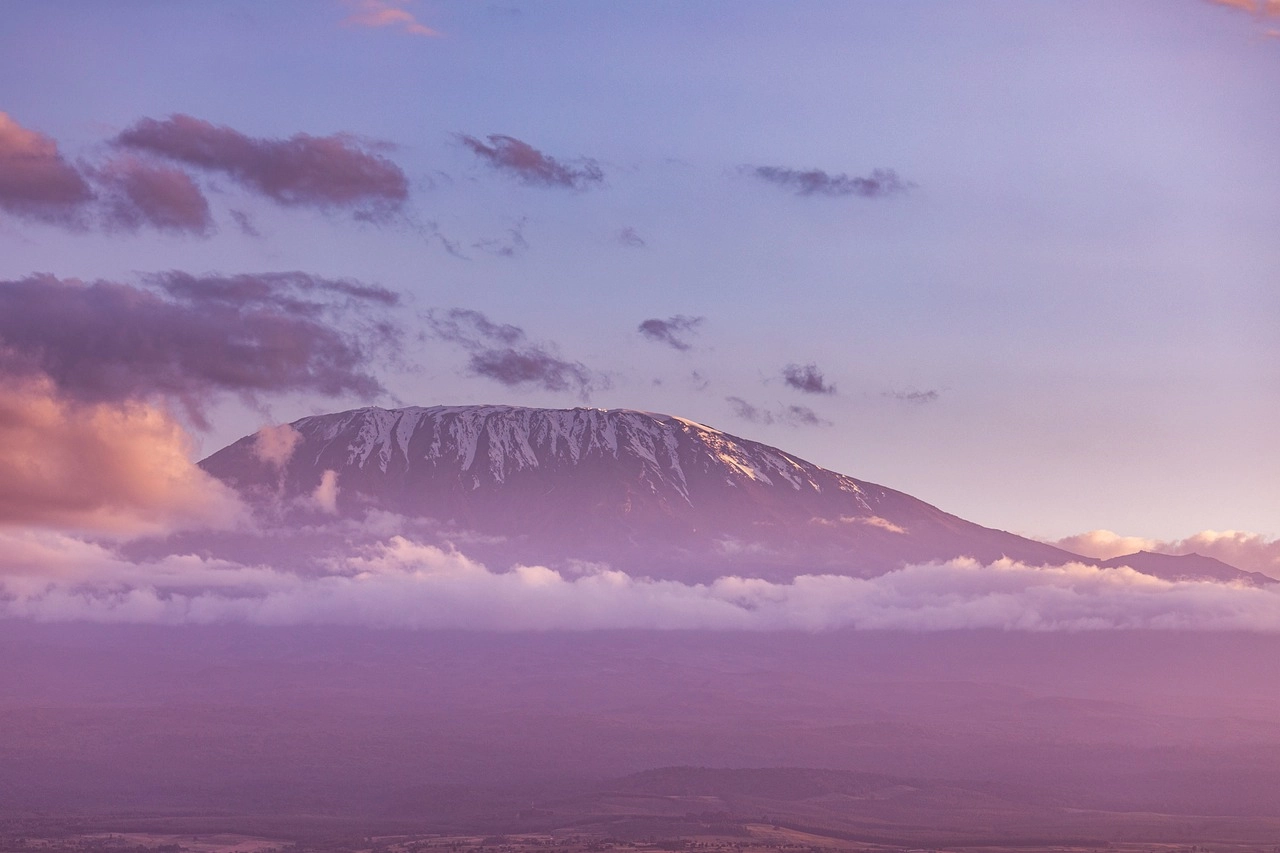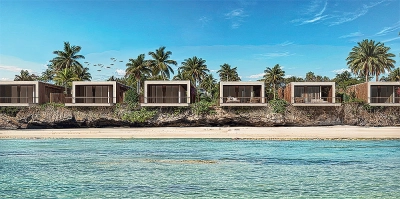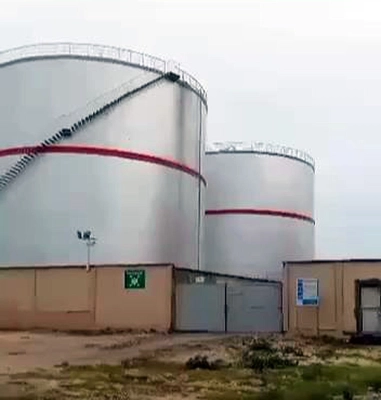Tanzania
 Table of contents
Table of contents
Tanzania is the largest country in East Africa by area. It borders many other African countries and also has access to the Indian Ocean. Tanzania is home to world-famous national parks and reserves. In addition, it has one of the most dynamically developing economies on the continent.
General information
Official name of the state — United Republic of Tanzania. The state occupies an area of 947,300 km² (31st in the world). The population is approximately 66,351,911 people (as of 2023).
97% of the population — Bantu Africans, representatives of more than 130 ethnic groups and tribes. The largest ethnic group is the Sukuma, making up about 16% of the total population. The cities are home to immigrants from India and Pakistan, as well as descendants of Arabs (especially in Dar es Salaam and Zanzibar), who, together with immigrants from Europe, make up about 2% of the population.
Official languages — Swahili and English, Arabic is widespread in Zanzibar, in the mainland — many local languages of the Bantu group. According to Tanzania's language policy, Swahili should be used in social and political spheres, primary and adult education, English — the language of secondary and higher education, technology and the supreme court of the country. However, the mother tongue of the majority of Tanzanians is the language of their ethnic group.
Muslims make up 50% of the population (in Zanzibar — 99%), almost all Muslims — Sunnis (80 to 90%), Christians — 40%. Traditional local beliefs, Hinduism and Buddhism are also common.
The official currency of the country is the Tanzanian shilling.
Nominal capital — Dodoma, the actual capital — Dar es Salaam.
In 1996, Dodoma became the official capital of Tanzania. The residences of the government and the president of the country were moved to Dodoma, but foreign embassies, as well as most government agencies, industrial enterprises, banks and offices remained in the former capital — Dar es Salaam.
Dar es Salaam — largest city in Tanzania. The richest city in the country and an important economic center. It is the largest port in Tanzania and one of the largest ports on the east coast of Africa. Agricultural products and minerals are exported through it. The port serves the inland countries of Uganda, Rwanda, Burundi, Democratic Republic of Congo, Zambia and Malawi. It is also a staging post on the Congo River, the navigable part of which, Lualaba, can be reached by rail. The city is the terminus of the railway line to Kigoma, located to the west on Lake Tanganyika, and Mwanza, located to the northwest on Lake Victoria. The city's port is connected by the Tanzam Railway (operating since 1975) with Zambia. Dar es Salaam International Airport offers domestic and international flights. With a picturesque harbour, beautiful beaches and thriving nightlife, the city has become a popular tourist destination. The city produces soap, paints, cigarettes, food products, metal, glass and wood products, textiles, and shoes.
The territory of mainland Tanzania is administratively divided into 20 regions, the islands of Zanzibar and Pemba — into 5 regions. The regions are divided into 70 districts.
History, geography, culture, mentality
Back in the 8th century AD. Zanzibar and other islands off the east coast of Africa were a base for Arabs trading with the mainland. These islands were called the country of Zenj. Over time, Zanzibar became an independent Muslim sultanate, developing trade relations with the countries of the Middle East and the Indian subcontinent. In the 16th-17th centuries. it was under the rule of the Portuguese, and in the 18th century. came under the influence of the Sultans of Oman. Soon a large center for trading slaves, ivory and spices arose here. Trade routes rushed deep into the mainland and reached the region of Mount Kilimanjaro. Interaction with slave traders caused profound social changes. At the end of the 19th century. The areas surrounding Kilimanjaro became the center of activity for Christian missionaries. For a long time, the Kilimanjaro region occupied a central place in the economic life of the country.
At the end of the 19th century. Zanzibar was turned into a British protectorate, and the mainland of modern Tanzania (Tanganyika) — to a colony within German East Africa. Soon the first settlements of German settlers appeared here; the mountainous region of Usambara with a cooler climate was especially popular. In 1905-1906 The Germans brutally suppressed the protests of the local population. After World War I, Germany lost Tanganyika, which became a League of Nations mandate under British rule. The British administration incorporated local traditional institutions into the system of colonial administration. The British established the production of cash crops, including cotton.
The viability of the colonial system was undermined during the global economic crisis of the 1930s, when the costs of administering colonies increased.
After World War II, Tanganyika became a UN Trust Territory under British rule. The national movement grew stronger in the 1950s, and Tanganyika gained independence in December 1961. Zanzibar followed suit on December 10, 1963.
On January 12, 1964, an uprising broke out in Zanzibar, the power of the Sultan was overthrown, and on April 26, 1964, the leadership of the Republic of Tanganyika and the People's Republic of Zanzibar and Pemba announced the creation of the United Republic of Tanganyika and Zanzibar.
On October 29, 1964, the country became known as Tanzania.
Tanzania is bordered to the north by Kenya and Uganda, to the west by Rwanda, Burundi and the Democratic Republic of the Congo, and to the south by Zambia, Malawi and Mozambique. The eastern border is the Indian Ocean. Most of the country is located on the East African Plateau. The territory of Tanzania covers part of the largest lakes in Africa — Lake Victoria in the north (Tanzania also owns the largest island, Ukerewe), Lake Tanganyika (which is often called Baikal's twin) in the west, and Lake Nyasa — in southern Tanzania. The highest mountain in Africa — Kilimanjaro. The country has 15 national parks, which are managed by the Tanzania National Park Service.
Tanzania's culture is a delightful blend of influences from over 120 tribes. Tanzania — one of the most culturally diverse countries in the world. The diversity ranges from the towering warriors of the Maasai, the ancient customs of the Hadza Bushmen, the ingenious farming methods of the Wameru, the artistic talents of the Makonde, to the Chaga farmers and traders. Each of Tanzania's 120 different tribes has its own way of life, but together they come together gracefully to form Tanzanian culture.
Power
Tanzania form of government — presidential republic. Head of state and head of government — President, elected by the population for a 5-year term, with the possibility of a second consecutive term.
Parliament — unicameral State Assembly (Bunge), 274 deputies of which 232 are elected by the population for a 5-year term, 37 women deputies are personally appointed by the president, and 5 deputies are appointed by the autonomous parliament of Zanzibar.
Economy
Tanzania's economy is the second largest in the East African region. In 2021, GDP grew by 4.9%. (in 2020 — by 4.7%). The volume of gold and foreign exchange reserves has increased and amounts to 6.714 billion US dollars.
The most important sectors of the economy are agriculture (25% of GDP, 2/3 of the working population is employed), industry (30% of GDP, based on the mining industry), and the service sector (tourism, construction and telecommunications, 45% of GDP). The existing capacities of the food processing industry work mainly for the domestic market. Large volumes of products (primarily — grain crops) are purchased abroad.
At the international level, Tanzanians intend to increase the supply of agricultural products, as well as achieve the so-called. “opening of markets,” which means a reduction or abolition of customs duties on agricultural goods by partners. Tanzania ranks second in Africa (after Ethiopia) in the number of cattle and is fully self-sufficient in the main types of meat and dairy products.
In terms of total catch and fishery products, Tanzania is one of the largest fishing powers in Africa. Fish production is about 350-400 thousand tons per year, with 85% coming from inland fisheries, 14% from marine fisheries and 1% from aquaculture. The sector provides more than 4 million jobs and about 1.4% of GDP.
Tanzania has rich energy resources, including hydropower, natural gas reserves (1.63 trillion cubic meters), coal (296 million tons) and uranium (58.5 thousand tons).
Natural gas — a key element in the fuel and energy sector of Tanzania, it provides the generation of 57% of Tanzanian electricity or 855 MW. Daily production is 3 million cubic meters. Liquefied natural gas is imported in small quantities for everyday purposes. The gas shelf is divided into areas ("blocks"), for the research and development of which local authorities issue licenses.
Tanzania has no proven oil reserves. It is assumed that some volumes may be located in the Lake Tanganyika basin. The country is a net importer of petroleum products. The import of petroleum products is regulated by the state and is carried out through a system of wholesale government procurement, including on a tender basis. There are no oil refineries in the country. There are several thermal power plants operating on petroleum products and producing approximately 190 MW of electricity.
Along with gas fuel, hydropower makes the largest contribution to electricity production in Tanzania, due to its rich water resources.
Tanzania has significant potential for mineral resources. The priorities of the mining industry are the extraction of gold (55 tons per year), diamonds (298 thousand carats), and coal (more than 700 thousand tons). Iron ore, precious stones, nickel, copper, cobalt, salt, and phosphates are also mined.
Main directions of gold exports — UAE, Switzerland, Uganda, India and Türkiye. Coal is exported to China, India, Egypt and some African countries (about 300 thousand tons in 2021). In 2022, Tanzania began exporting coal to Europe and India.
The problem of development of the mining industry is the weak manufacturing industry (provides only 7% of GDP).
In the south of Tanzania there is the largest uranium deposit in the world with reserves of 152 million tons of ore. Project operator — company "Mantra" (Mantra Tanzania Ltd.), which is part of the Rosatom State Corporation.
The main imported goods include agricultural machinery, implements and pesticides, industrial raw materials, machinery and transport equipment, petroleum and petroleum products, construction materials, and consumer goods.
Major export commodities include minerals (gold, precious stones, diamonds, coal, etc.), coffee, cotton, cashew nuts, tea, sisal, tobacco, pyrethrum and cloves. Main import — machinery and transport equipment, textiles and clothing, petroleum products.
Tanzania's main trading partners are: China, Germany, Japan, India, European Union, United Arab Emirates, United Kingdom, Kenya, Japan, India and South Africa.
Tanzania is a member of the East African Community and a member of the African Continental Free Trade Area. Member of the Commonwealth of Nations.
Business climate
In Tanzania, prices are quite low, including the low cost of starting a business, as well as running it. Low wages for workers. The state has preferential territories where some taxes are absent. The country is in so-called trade agreements with many African countries, this opens doors in the field of trade.
What types of legal entities can be opened in Tanzania:
Limited liability company
A limited liability company in Tanzania is a legal entity separate from its shareholders. The responsibility of each shareholder for the debts and obligations of the LLC limited by their respective contribution to the authorized capital. To register an LLC in Tanzania, a minimum of 2 shareholders and 2 directors are required. Each of which can belong to any country. There is no minimum prepaid management amount. LLC is the most preferred legal entity of a foreigner to register his business.
Public company
Open company in Tanzania — it is the one whose shares are available for people to trade. To form such a company, a minimum of 2 directors and 7 shareholders (one of whom must be a Tanzanian citizen with a minimum shareholding of 40%) is required. Additionally, a minimum share capital of $300,000 must be deposited to form a public company. A public company is ideal for those who want to raise capital or list a company on the Tanzania National Exchange.
Branch
A foreign company can establish a 100% foreign company in Tanzania in the form of a branch. Can be used to carry out business activities within the country.
Representation company
A representative office is a company created solely for market research or promotional purposes. It is not allowed to engage in commercial activities.
Investment climate
Attracting investments, as well as preferential loans, is a priority of Tanzania’s foreign economic policy. The largest investors include China, India, USA, UK, UAE, Kenya and South Africa.
Tanzania is rich in natural resources and investment opportunities. The government of the United Republic of Tanzania has simplified investment rules to attract investors from all over the world. Investments in Tanzania are controlled by the Tanzania Investment Center (TIC).
Investment incentives for TIC certificate holders:
- By recognizing private property and protecting against any non-commercial risks, Tanzania is an active member of MIGA (Multilateral Investment Guarantee Agency) as well as a member of the International Center for Settlement of Investment Disputes (ICSID), so investors have unlimited rights to international arbitration in the event of a dispute with government.
- Import duties on capital project assets have been reduced (5% import duty for investments in priority sectors and 0% for investments in leading sectors).
- Preferential investment benefits and deductions, i.e. capital incentives (100%) for industrial buildings, machinery and equipment, as well as agricultural expenses.
- Deferment of VAT payment on capital goods of the project, as defined in the tariff book and the relevant annexes thereto.
- Refund of import duty on raw materials.
- Zero VAT rate on resources from the mining industry, agriculture, goods produced for export, food and tourism.
- Straight-line accelerated depreciation of capital goods.
- For up to five years, carry forward all business losses to future profits.
- Reasonable corporate tax rates of 30% and low withholding tax on interest payments.
- Unlimited right to transfer 100% of foreign exchange profits and capital outside the country.
- Easily obtain other permits such as residence and work permits, industrial license, trade license, etc. thanks to TIC's one-stop shop.
- Automatic employment permits for an initial quota of 5 foreign citizens in the project who have Incentive Certificates.
Tanzania places great importance on the role of trade in achieving the National Goals for poverty eradication through structural transformation of the economy, with the private sector playing a leading role as the engine of national economic growth.
The country offers a balanced and competitive package of fiscal trade incentives, especially in priority sectors such as manufacturing, agriculture, tourism, oil, gas and mining. For all these sectors, with the exception of the oil and gas sectors, the purchase of all capital goods and components is subject to zero import duty and deferred VAT.
Expenditures on scientific research in agriculture are taken into account for income tax purposes, while the acquisition of capital is 100% expensed. You can also import duty-free all capital goods, spare parts, hotel equipment, explosives for gas and oil exploration. Tanzania has also signed double tax treaties with Denmark, India, Italy, Norway, Sweden, Kenya, Uganda, Zambia and Finland.
The leading investment sectors include:
- agriculture and agro-industrial complex
- mining
- oil and gas
- tourism and infrastructure.
Priority sectors include:
- energy
- production
- chemical industry
- natural resources (fisheries and forestry)
- construction and real estate development
- management consulting
- human resource development (hospitals, medical centers and educational institutions)
- radio and television broadcasting
Priorities in the fuel and energy sector include the following projects:
- Construction of a hydroelectric power station on the Rufiji River with a design capacity of 2115 MW.
- Construction of a liquefied natural gas plant in the Lindi region.
- Modernization of gas thermal power plants "Kinyerezi I, III and IV" and hydroelectric power station "Rukhudzhi", "Rumakali" and "Kikonge".
- Construction of an oil pipeline area from Ugandan fields to the Tanzanian port of Tanga.
- Construction of a gas pipeline along the Dar es Salaam route — Mombasa (Kenya) worth US$1.1 billion.
- Construction of a gas pipeline in the Dar es Salaam section — Kampala (Uganda), the route of which could follow the oil pipeline from Uganda to Tanzania.
- Plans are being developed to expand the use of alternative energy sources
The main task aimed at ensuring economic prosperity and stimulating business development in Tanzania was the introduction of special economic zones (SEZs). They were initiated as catalysts for industrial and economic growth to stimulate export trade.
They are aimed at development and investment in specific sectors:
- tourism
- mining industry
- agriculture
- trade
- forestry
These are zones located within the national boundaries of a country, which are subject to different laws of trade and commerce compared to other areas within the same nation.
Business and investment support structures
Tanzania offers several business and investment support structures that help boost the country's economy and make doing business easier. Some of the key structures include:
- Tanzania Investment Center (TIC)The main organization responsible for attracting and facilitating investment in Tanzania. TIC provides information on investment opportunities, advice on business registration, assistance in obtaining licenses and other services for investors.
- Tanzania Chamber of Commerce, Industry and Agriculture (TCCIA). This is an association that represents the interests of entrepreneurs and farmers in Tanzania. TCCIA provides a platform for the exchange of experience, provides support for business development and contributes to the creation of a favorable business environment.
- Tanzania Private Sector Foundation (TPSF) It is a non-profit organization that represents the interests of the private sector. TPSF works with government and other stakeholders to create an enabling environment for business, and provides advice and guidance to improve the business environment.
- Tanzania Export Processing Zones Authority (EPZA). It is the body responsible for managing export processing zones in Tanzania. EPZA provides investors with various incentives, such as tax breaks and simplified customs procedures, to attract foreign investment and develop the export sector.
- Tanzania Revenue Authority (TRA). Collects taxes and customs duties in the country. TRA provides tax information, regulates tax procedures and provides support to taxpayers.
- Confederation of Tanzania Industry (CTI)It is an association that brings together businesses and entrepreneurs from various industrial sectors. CTI advocates for business interests, provides guidance and advice on industrial development issues, and facilitates connections with government to discuss important issues related to the industrial sector.
- Tanzania National Business Council (TNBC)It is a forum established to discuss and resolve issues related to the development of business and the economy of Tanzania. TNBC is a platform for dialogue between government and the private sector, promoting the development of strategies and policies aimed at economic development.
These support structures play an important role in stimulating the business environment and attracting investment to Tanzania.

Tags:

537,263,300 ₽

583,314,440 ₽

7,291,430,501 ₽


 New artıcles
New artıcles

 REAB Services
REAB Services
 News
News
 Useful tip
Useful tip

